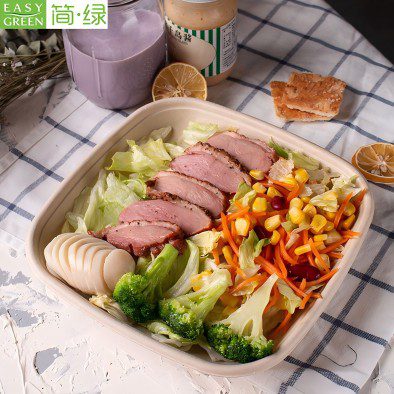Food packaging plays a crucial role in preserving the freshness, safety, and appeal of our daily meals. However, the environmental impact of traditional packaging materials, such as plastic, has become a significant concern. Sustainable food packaging enters the scene, offering a viable alternative that balances functionality with environmental responsibility.
Sustainable food packaging refers to packaging solutions that minimize environmental harm throughout their lifecycle. This includes considerations for the raw materials used, the production process, the packaging’s useful life, and its ultimate disposal. The goal is to reduce waste, pollution, and the depletion of natural resources while still protecting food and enhancing consumer experience.

Key feature of sustainable packaging is the use of biodegradable or compostable materials. These materials can break down naturally in the environment, reducing the amount of plastic waste that ends up in landfills and oceans. Examples include packaging made from plant-based bioplastics, paper derived from sustainably managed forests, and mushroom-based packaging, which is both compostable and sturdy.
In addition to biodegradable materials, sustainable food packaging often incorporates recycling practices. Manufacturers are increasingly designing packaging that can be easily recycled, reducing the need for new materials and the energy associated with their production. Consumers also play a vital role here by properly disposing of recyclable packaging in designated bins.
Another important aspect of sustainable packaging is the reduction of material usage. By optimizing packaging designs, manufacturers can use less material while still ensuring the safety and quality of the food. This not only reduces waste but also lowers production costs and environmental footprints.
Moreover, sustainable food packaging often emphasizes the use of renewable energy sources in production processes. This further minimizes greenhouse gas emissions and other pollutants, contributing to a cleaner and healthier planet.
Sustainable food packaging represents a critical shift towards more environmentally friendly practices in the food industry. By embracing biodegradable and compostable materials, recycling practices, reduced material usage, and renewable energy, we can significantly reduce the environmental impact of food packaging. As consumers become more aware of these issues, the demand for sustainable packaging solutions will continue to grow, driving innovation and progress towards a more sustainable future.








